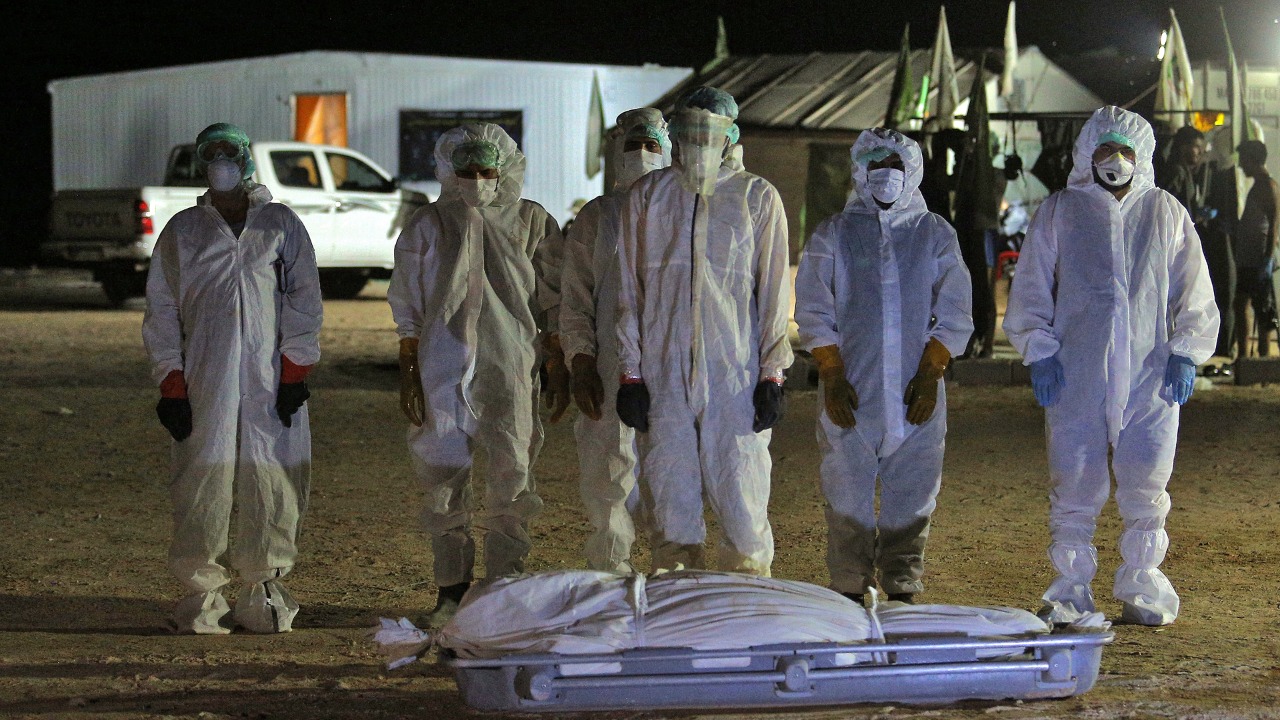COVID-19: Iraq announces record 2,848 infections, over 70 deaths in single day

ERBIL (Kurdistan 24) – On Friday, the Iraqi Ministry of Health and Environment announced that health officials had again confirmed over 2,000 new COVID-19 infections and the death of over 70 people across the country within the previous 24 hours.
The ministry’s daily statement noted that it had conducted 12,054 coronavirus tests in a single day, 2,848 of which returned positive.
According to the statement, since the spread of the virus to Iraq began in late February, 72,460 people have been infected, 41,380 have recovered, and a total of 2,960 individuals have died from the disease.
On Thursday, the Technical Deputy of the Ministry of Health and Environment, Dr. Jassim al-Falahi, told the Iraqi News Agency that his ministry plans to increase its bed capacity so that it can receive all COVID-19 patients.
“A total of 20 hospitals will start operating soon,” al-Falahi said.
On Thursday, Iraqi Health authorities decided to allow Iraqi citizens to travel abroad and to receive Iraqis stranded abroad, reversing its previous decisions on banning commercial flights.
Iraq first closed its airports to commercial flights on March 17. Originally, the ban was to last a week, but it has successively been extended, as the coronavirus crisis has persisted and even grown much worse.
The ban was last extended on July 1 and is scheduled to last until July 15. It may well be re-extended then, and it is unclear what the latest decision to allow Iraqi citizens to return portends for commercial flights more broadly.
Iraqi citizens who return from abroad must self-quarantine for two weeks at home, the decree stated. Iraqis stranded abroad will be allowed to enter Iraq after undergoing COVID-19 tests, but even if the tests prove negative, they must self-quarantine for 14 days.
That is the incubation period for the virus. The 14-day quarantine helps insure that people who have been exposed to the disease and might yet come down with it do not infect others.
Previously, Iraqi officials threatened criminal prosecution of citizens not following health restrictions and they extended the nationwide partial shutdown until at least July 20.
Read More: COVID-19: Iraq records 1,724 new cases; authorities extend measures
Since late May, Iraq has been recording increasingly higher numbers of new coronavirus infections and deaths, even as authorities reintroduced partial curfews in an effort to curb the spread of the virus. Health officials have repeatedly expressed fears of a collapse of the already fragile healthcare system.
Warning from International Rescue Committee: 600% increase through June
On Thursday, the International Rescue Committee (IRC) issued a dramatic statement, announcing that the number of Iraq’s COVID-19 cases had risen by 600 percent over the month of June.
Stressing the danger, the IRC warned that “efforts must be redoubled” to slow down the spread of the highly contagious disease.
The IRC report highlighted an alarming statistic: the number of confirmed coronavirus cases in Iraq on June 1 was only 6,868. However, a month later, on July 1, the figure had jumped to 53,708.
Iraq’s health ministry had previously announced that the country’s hospital capacity was becoming overwhelmed, and it was planning to convert universities and school buildings into makeshift COVID-19 hospitals.
Since late May, after opening its border with Iran, the original epicenter of the disease in the Middle East, Iraq has been recording increasingly higher numbers of coronavirus infections and deaths. So far, there is no sign of that changing, as the crisis continues.
Editing by Laurie Mylroie
